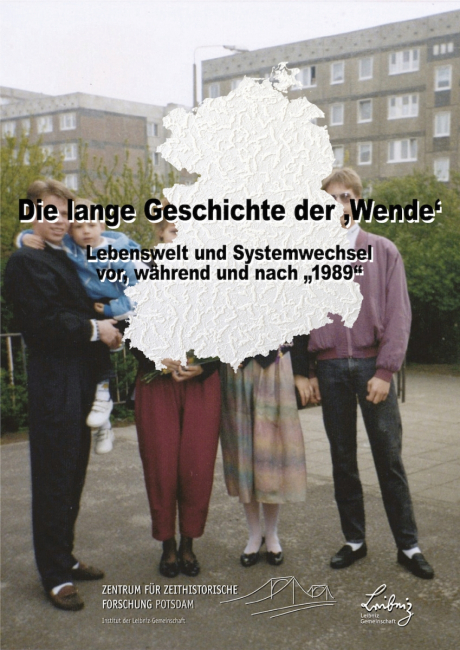Project leader: Priv.-Doz. Dr. Kerstin Brückweh
Postdoc: Anja Schröter
PhD students: Kathrin Zöller, Clemens Villinger
Funded by the Leibniz Association as part of the Leibniz Competition, 2016-2019
1989/90 is often considered a key caesura of the twentieth century. By looking at the long-term developments surrounding this historic event from the mid-1970s to the beginning of the new millennium, this project analysed the social changes that paved the way for and shaped all three stages: the late phase of the GDR, the peaceful revolution, and the transformation that followed. Dynamics and tensions of the East German lifeworld throughout the period of regime change were examined in four case studies focused on housing, local political culture, education and consumption practices. All four studies combined archival sources with oral history and the secondary analysis of social science data. The results are placed in the context of other late or post-communist countries as well as the context of other societies in transformation.

